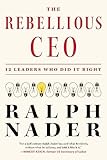“No nation dares to attack us or our allies because they know that’s the path to ruin.” — US President Barack Obama
Militarism
“The United States of America is the most powerful nation on Earth. Period. It’s not even close. We spend more on our military than the next eight nations combined. Our troops are the finest fighting force in the history of the world.” One of the most prominent themes in President Obama’s State of the Union Address of January 12, 2016, was militarism.
Militarism. It is “[t]he belief or desire of a government or people that a country should maintain a strong military capability and be prepared to use it aggressively to defend or promote national interests,” defined by the Oxford online dictionary of the English language. Obama tonight spoke of the United States’ military supremacy over the entire rest of the world, and proceeded to threaten other countries and perceived threats. “When you go after Americans, we go after you. It may take time, but we have long memories, and our reach has no limit.”
Historical similarities
Militarism is widely considered by scholars to be one of the main causes of the First World War. This is not surprising: boasting about a country’s military might and naming other nations “enemies” will not usually yield peaceful outcomes. Militaristic rhetoric, in general, signifies that the threat of war is already lurking, and it in turn increases that same threat. This is shown in history especially when multiple countries are involved in the smack-talk. Such was the case in 1914, when Archduke Franz Ferdinand was shot and nearly all of Europe was pulled into the bloodiest war hitherto seen in history.
The cause of WWI was not the assassination in itself; that was simply the immediate trigger. The roots of the war can be found in trading disputes, militarism and nationalism, and an international web of military alliances which pulled all the “Great European Powers” into war one after the other. This sticky web eventually reached across the ocean to America.
The situation of the pre-WWI years bear quite a resemblance to the international scene today in 2016. Militaristic and nationalistic speech is heating up, not only in the United States but also in Europe and Russia. Economic alliances, trade organizations, and military coalitions are slowly dragging more and more troops to the ground in Iraq and Syria, and also to Ukraine.
The “proto-war” in the Middle East is part proxy-war, part internal struggle. There are so many factions that it’s truly hard to keep track, and each one wants something different. Many groups native to the region fight for religious or ethnic reasons; intervening powers – including Russia, the US, and the EU – seek to preserve alliances and spheres of influence in the region in this time of chaos. Every day the unsteady situation shifts, and becomes more complex and more serious. One thing, however, can be said for certain: it’s not looking hopeful.
Change the Political System
Much of the second half of Obama’s speech centered on the United States’ military and its role in leading the world, with no small amount of patriotic and nationalistic phrases mixed in. But he also touched upon education, political corruption, clean energy and the economy. Most of his words on these topic will require definite action before they should be taken seriously. These are all nice ideas to propose in his last State of the Union speech as President, but we shall have to wait and see if anything actually comes of them.
Near the end of the speech, he made the point that “[c]hanges in our political process – in not just who gets elected but how they get elected – that will only happen when the American people demand it. It will depend on you. That’s what’s meant by a government of, by, and for the people.” There are two claims to address and analyze here. 1) The whole political system ought to be changed, not just the people getting elected through it. Corruption and excessive influence of corporations and rich families have to go. 2) It depends on the American people. The people hold the power in the government, not the other way around.
1). This is an ambitious goal, but even if corruption were rooted out, and corporate influence decreased, all our problems would not magically be solved. Who is elected to office makes no difference, this is true. But to change only the political system is to only trim the outer brambles of a thorny shrub. Why are politicians corrupted in the first place? Why do corporations have the influence they do? The entire world economy and social system of modern life is built upon the foundations of greed, accumulation of wealth, competition, selfishness, and inequality. A political system having these qualities is based in the whole socio-economic system, and to modify only the political structure will not affect the real source of corruption and greed. President Obama demands treating only one symptom of a disease left uncured.
2). Although this statement can be interpreted as blaming the American people, it seems more likely that Obama is speaking with the intention of empowering them. He tells people to vote. “So, my fellow Americans…our collective future depends on your willingness to uphold your duties as a citizen. To vote.” It’s a simple message, with a simple explanation: the illusion of power is quite an effective pacifier for even some of the most restless people.
America the Dissatisfied
You wouldn’t know it by watching NBC Nightly News, but in America do live some of the most restless people. After all, in the US, division between opulence and destitution is strikingly acute. Many, many protests have covered the country in the recent months and years. Workers’ strikes, students’ marches, slogans of anti-racism, anti-fascism, anti-capitalism. There was a student protest a few months ago in New York against fascism in Ukraine. There was a demonstration just last month, also in New York, bringing attention to and protesting against Donald Trump and his own fascist ideology. Black Lives Matter demonstrations continue. The Fight for $15 movement too has been incredibly undercovered by the mainstream media. Workers’ strikes, marches, and demonstrations all over the country, even with international support, has helped to raise the minimum wage in 21 states and DC; win $15/hour minimum wage for McDonald’s fast food workers in the major cities of Seattle, Los Angeles and San Francisco; and win the same $15/hour minimum wage for all fast food workers in New York State.
It’s no wonder that politicians – both Democrats and Republicans – scream about “saving the middle class”. The middle class is the buffer between the poor, oppressed, and dissatisfied, and the millionaires who live in luxury like the bureaucrats themselves.
What is to be done?
The most important message to gather from Obama’s State of the Union Address is neither hope nor hysteria. President Obama’s speech, the 2016 US Presidential race thus far, and international events as a whole all intertwine. In order to understand them, it is necessary to reflect on history and identify when historical trends begin to repeat themselves in the present day. Next, we must ask if the politicians can truly deliver answers and help for regular working people like you and I who would be hurt from “historical repeats”, and who are indeed being hurt right now. Can real, living solutions really be hoped for from “fixing” political corruption, or by switching out one bureaucrat for another next January? It is necessary to seriously think about the question: who holds the most powerful strength in the world? Those who hide behind bodyguards and armored cars, or those who march through the streets in tens of thousands, day and night, restless, fearless? Who should we, all dissatisfied people of the world, depend on for change – them, or ourselves?










